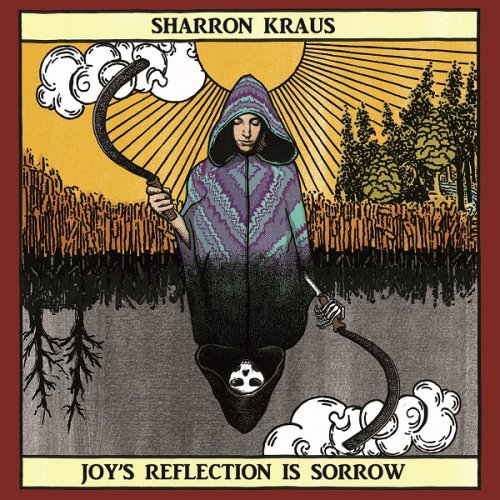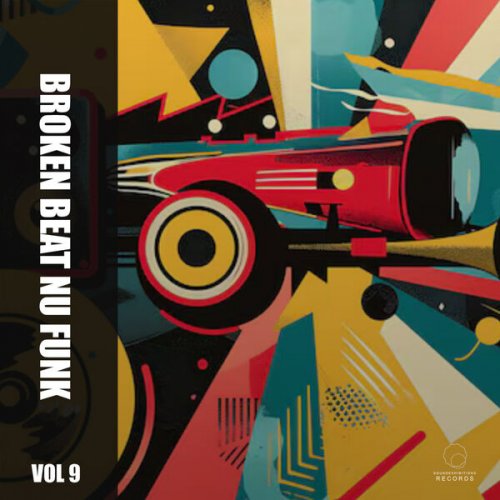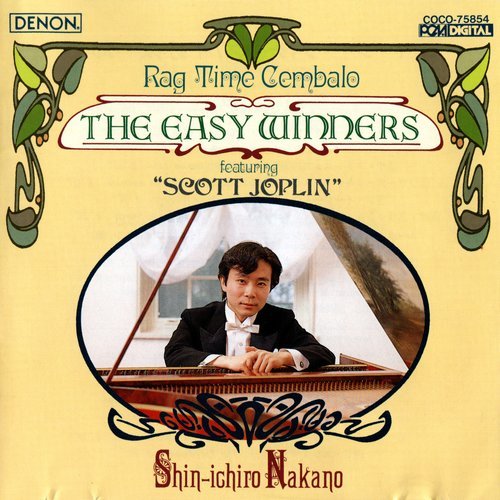Sharron Kraus - Joy's Reflection is Sorrow (2018)

Artist: Sharron Kraus
Title: Joy's Reflection is Sorrow
Year Of Release: 2018
Label: Sunstone
Genre: Psychedelic Folk, Singer-Songwriter
Quality: 320 / FLAC (tracks)
Total Time: 43:38
Total Size: 116 / 291 Mb
WebSite: Album Preview
Tracklist: Title: Joy's Reflection is Sorrow
Year Of Release: 2018
Label: Sunstone
Genre: Psychedelic Folk, Singer-Songwriter
Quality: 320 / FLAC (tracks)
Total Time: 43:38
Total Size: 116 / 291 Mb
WebSite: Album Preview
1. My Danger (3:44)
2. Figs and Flowers (6:12)
3. The Man Who Says Goodbye (5:50)
4. Joy's Reflection is Sorrow (4:49)
5. Sorrow's Arrow (5:49)
6. Secrets (5:11)
7. When Darkness Falls (5:42)
8. Death and I (6:22)
The prolific Kraus (two dozen-plus recordings in numerous permutations/collaborations, including Rusalnaia, Tau Emerald, Espers, United Bible Studies, and The Big Eyes Family Players) points a yin/yang mirror at broken relationships and doomy/gloomy aftereffects on her latest solo album. Song titles address darkness, sorrow, death, and danger, so this is not exactly the party album you’ll want to toss on at the next backyard BBQ. No, this should be savoured in the comfort of your own bedsit, contemplating Kraus’s personal demons while you reflect back on your own disheartened past experiences. ‘Figs and Flowers’ flickering, countrified melody flows across your swaying body on the back of Nick Davis’s singing slide and angelic choral harmonies from Nancy Wallace and Jenny Bennett, with Oliver Parfitt’s bubbling synth and Bennett’s recorder adding an elegant sheen.
‘The Man Who Says Goodbye’ serpentines around the room to a dirgy dance, its diary-like lyrics softened by slide and recorder embellishments, imbuing the track with a tearful, baroque sense of longing and loss. The title track is a cautionary tale to cherish what you have, as that joy can easily turn to sorrow: “Change is the bringer of sorrow/In a world in which you’re no longer alive”. If your relationship is in a rut, a desire to change what you have, thereby changing the other person may not bring the results you’re hoping for.
Kraus’s gently strummed acoustic accompaniment on ‘Sorrow’s Arrow’ melds with more fluttering flute backing, cascading, gurgling synths, and dreary strings to create a whirlpool vision of shame and trepidation, while ‘Secret’ offers more peeks into Kraus’s diary and journal writings that house the painful memories she exorcises with this album. Still, not taking chances may lead to a regret that can’t be undone: “The greatest secrets that we keep / Are not the things we choose to hide / They’re the things we’d like to do / But doubt we can, so we haven’t even tried.”
Admittedly, the album does end on a couple of downer notes, as ‘When Darkness Falls’ wonders what we’ll do when darkness falls and evil takes over, a rare politically-motivated tune of anger and resigned hopelessness that questions the current political environment, while closer ‘Death and I’ also tries to resolve the inevitability of losing loved ones and soldiering on while shouldering the eternal pain left by the empty feeling of that hole in your life.
Writing in her acid folk bible, Seasons They Change, Jeanette Leech praised Kraus’s 2002 debut, Beautiful Twisted (Camera Obscura), noting the cornucopia of influences from traditional folk to cerebral goth. (Kraus confessed that she was fascinated by the spontaneous harmonies of bands like The Watersons and The Copper Family and once envisioned herself as a “slightly female version of Andrew Eldritch from Sisters of Mercy”!) Leech was won over by the album “which stirs up centuries-old images while also sounding effortlessly contemporary”. Joy’s Reflection Is Sorrow continues that marriage of styles, eerie goth-inflected vibes softened by traditional folk’s sweet harmonies, revisiting the dichotomy of dark/light, soft/hard, joy/sorrow and pushing through the sorrows life throws at her to find that joy anxiously, perhaps trembling timidly while it waits on the other side of the mirror. Look within yourself (through that reflective mirror) to solve your problems; no one will do it for you. You’ll be more empowered and more gratified by what you accomplished, instead of succumbing to outcomes that someone else decided for you.
‘The Man Who Says Goodbye’ serpentines around the room to a dirgy dance, its diary-like lyrics softened by slide and recorder embellishments, imbuing the track with a tearful, baroque sense of longing and loss. The title track is a cautionary tale to cherish what you have, as that joy can easily turn to sorrow: “Change is the bringer of sorrow/In a world in which you’re no longer alive”. If your relationship is in a rut, a desire to change what you have, thereby changing the other person may not bring the results you’re hoping for.
Kraus’s gently strummed acoustic accompaniment on ‘Sorrow’s Arrow’ melds with more fluttering flute backing, cascading, gurgling synths, and dreary strings to create a whirlpool vision of shame and trepidation, while ‘Secret’ offers more peeks into Kraus’s diary and journal writings that house the painful memories she exorcises with this album. Still, not taking chances may lead to a regret that can’t be undone: “The greatest secrets that we keep / Are not the things we choose to hide / They’re the things we’d like to do / But doubt we can, so we haven’t even tried.”
Admittedly, the album does end on a couple of downer notes, as ‘When Darkness Falls’ wonders what we’ll do when darkness falls and evil takes over, a rare politically-motivated tune of anger and resigned hopelessness that questions the current political environment, while closer ‘Death and I’ also tries to resolve the inevitability of losing loved ones and soldiering on while shouldering the eternal pain left by the empty feeling of that hole in your life.
Writing in her acid folk bible, Seasons They Change, Jeanette Leech praised Kraus’s 2002 debut, Beautiful Twisted (Camera Obscura), noting the cornucopia of influences from traditional folk to cerebral goth. (Kraus confessed that she was fascinated by the spontaneous harmonies of bands like The Watersons and The Copper Family and once envisioned herself as a “slightly female version of Andrew Eldritch from Sisters of Mercy”!) Leech was won over by the album “which stirs up centuries-old images while also sounding effortlessly contemporary”. Joy’s Reflection Is Sorrow continues that marriage of styles, eerie goth-inflected vibes softened by traditional folk’s sweet harmonies, revisiting the dichotomy of dark/light, soft/hard, joy/sorrow and pushing through the sorrows life throws at her to find that joy anxiously, perhaps trembling timidly while it waits on the other side of the mirror. Look within yourself (through that reflective mirror) to solve your problems; no one will do it for you. You’ll be more empowered and more gratified by what you accomplished, instead of succumbing to outcomes that someone else decided for you.

![Gianluigi Trovesi - Cinque piccole storie (2026) [Hi-Res] Gianluigi Trovesi - Cinque piccole storie (2026) [Hi-Res]](https://img.israbox.com/img/2026-02/06/04dun4qdctri61rqigv8tm2is.jpg)



![Kannon - ...in a Sea of Fire (2026) [Hi-Res] Kannon - ...in a Sea of Fire (2026) [Hi-Res]](https://img.israbox.com/img/2026-02/06/031z27045ersqlp1m4v7qos7b.jpg)
![Malene Mortensen & Christian Sands - Malene & Christian (2026) [Hi-Res] Malene Mortensen & Christian Sands - Malene & Christian (2026) [Hi-Res]](https://www.dibpic.com/uploads/posts/2026-02/1770214038_ye95svxsd11r2_600.jpg)

